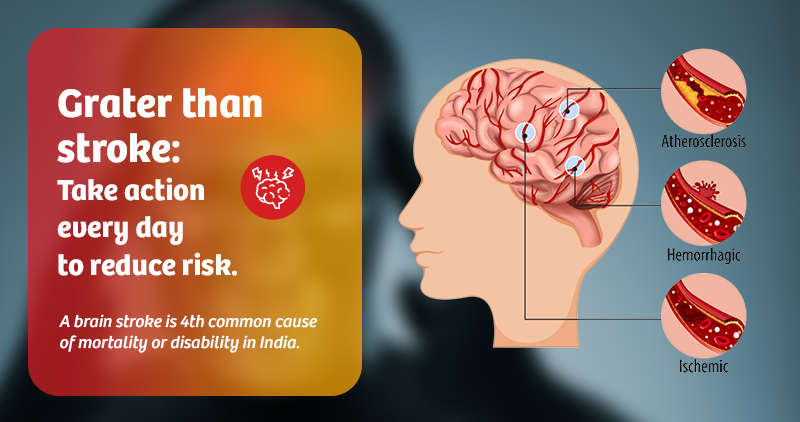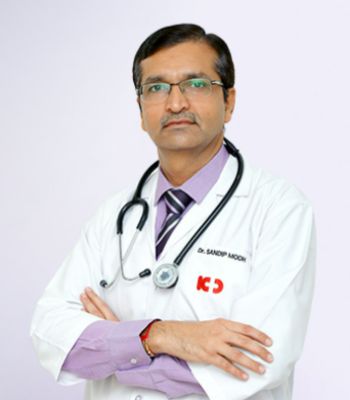

By Dr Sandip Modh
Consultant Neurosurgeon
Jan 29 , 2025
A brain stroke is 4th common cause of mortality or disability in India. Traditionally, it was an elderly age disease, but now the young generation is also getting affected. This shift raises crucial questions about the causes and prevention of young individuals.
If we look into statistics of brain stroke, an Indian study has put the incidence of annual stroke at 41 per 100,000 in the 40–44 very high age group. Around the world, there are 12.2 million strokes/per year. That translates into one stroke per 3 seconds. 1 in four people will have a stroke in their lifetime. Stroke is no longer a disease of the elderly – 63% of strokes happen in people under 70 years of age. 10-15% of all strokes occur in adults 18-50 years of age. Brain strokes can cause 10 million fatalities in low-middle-income countries, including India, by the year 2050, as per a Lancet Medical Journal study, which was conducted in collaboration with the Indian Council of Medical Research ( ICMR). The report said that stroke-related deaths are projected to reach up to 6.6 million in 2020 to a staggering 9.7 million in 2050.
The first few hours after a stroke are crucial for achieving the best possible outcomes. However, it's equally important to ensure that the patient is transferred to a stroke-ready hospital, where a team of neurologists, neurosurgeons, cardiologists, and interventionists is available, along with essential diagnostic facilities like MRI and CT scans. Time is critical, so act quickly—remember to BE FAST.
A stroke occurs when blood flow to part of the brain is interrupted, damaging brain cells.
It can vary, but common signs include :
As said, it can happen at any age, but risk may increase in the case of :
Raising awareness about the symptoms and risk factors of stroke is crucial. Continuous campaigns can help demystify the condition and encourage early intervention if needed. In case of stroke symptoms, reach the nearest stroke-ready hospital. KD Hospital is the best stroke-ready hospital with a state-of-the-art neuro ICU and cath lab for brain stroke patients. We have a dedicated stroke-ready team with an experienced neurologist, neurosurgeon, and interventional neurologist.